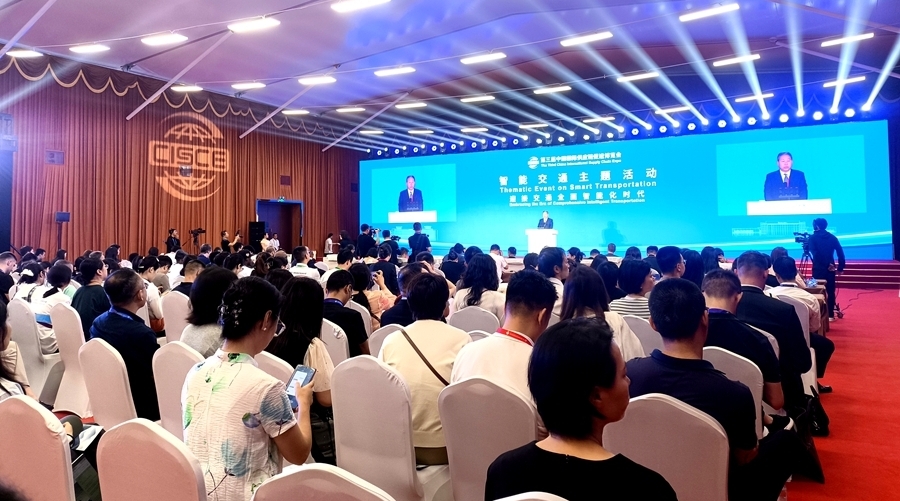
A panel titled "Embracing the Era of Comprehensive Intelligent Transportation" is held during the third China International Supply Chain Expo in Beijing, July 17, 2025. [Photo by Xu Xiaoxuan/China.org.cn]
Smart mobility technology is transforming global supply chain operations, industry experts said Thursday during a panel titled "Embracing the Era of Comprehensive Intelligent Transportation" at the ongoing third China International Supply Chain Expo (CISCE).
Nie Wenhui, vice chairman of the China Council for the Promotion of International Trade (CCPIT), underscored transportation's role as the backbone of economic activity and a vital link in global commerce, vital for industrial and supply chain stability. He noted that the integration of emerging industries — including next-generation information technology, artificial intelligence (AI) and new energy — with transportation is reshaping global competitiveness.
"This year's CISCE continues to feature an intelligent vehicle exhibition area, which aims to better connect upstream and downstream segments, encourage cooperation between large and small enterprises, and promote collaboration across industry, academia, research and application, both in China and globally," Nie said.
David Muls, senior director of the Madrid Registry Division at the World Intellectual Property Organization, said Chinese manufacturers have evolved from technology followers to innovation leaders, particularly in battery technology, connected vehicle systems and manufacturing efficiency.
He noted that Chinese electric vehicle (EV) makers are rapidly expanding into markets across Europe, Southeast Asia, Latin America and beyond. This global footprint reflects not only China's commercial ambition but also its growing technological confidence, he said. He emphasized that China's EV sector achievements are a result of global supply chains and international innovation partnerships rather than isolated national efforts.
Zhou Weidong, president of the CCPIT Machinery Sub-Council, called the expo "not just a showcase platform but also a catalyst for global industrial collaboration." Looking ahead to fully intelligent transportation, he outlined three crucial areas for deeper international cooperation.
First, Zhou called for shared global standards, urging countries to dismantle technological barriers and promote mutual recognition in algorithms, vehicle-road coordination agreements and data security. He also called for establishing green supply chain partnerships, encouraging joint efforts in battery recycling and sustainable logistics. Finally, he pointed to China's county-level markets as an untapped opportunity. These areas, Zhou noted, hold 74% of the country's motor vehicles but have limited public transportation services. Zhou suggested that connected vehicle technologies could unlock a market worth hundreds of billions of yuan, creating opportunities for global enterprises.
Habib Turki, chief development officer of the Federation Internationale de l'Automobile, highlighted motorsports' role in enhancing global visibility for automotive brands. He said Chinese companies now deliver performance comparable to premium manufacturers like Ferrari and Aston Martin, with motorsports serving as both testing grounds for R&D and channels for building brand recognition.
The event also featured two expert panels. One examined how AI is reshaping smart transportation supply chains, while the other explored intellectual property's role in automotive sector expansion.


 Share:
Share: 




 京公網(wǎng)安備 11010802027341號(hào)
京公網(wǎng)安備 11010802027341號(hào)